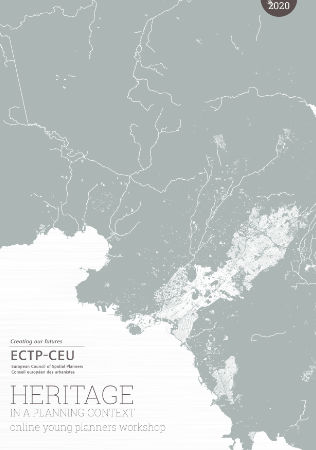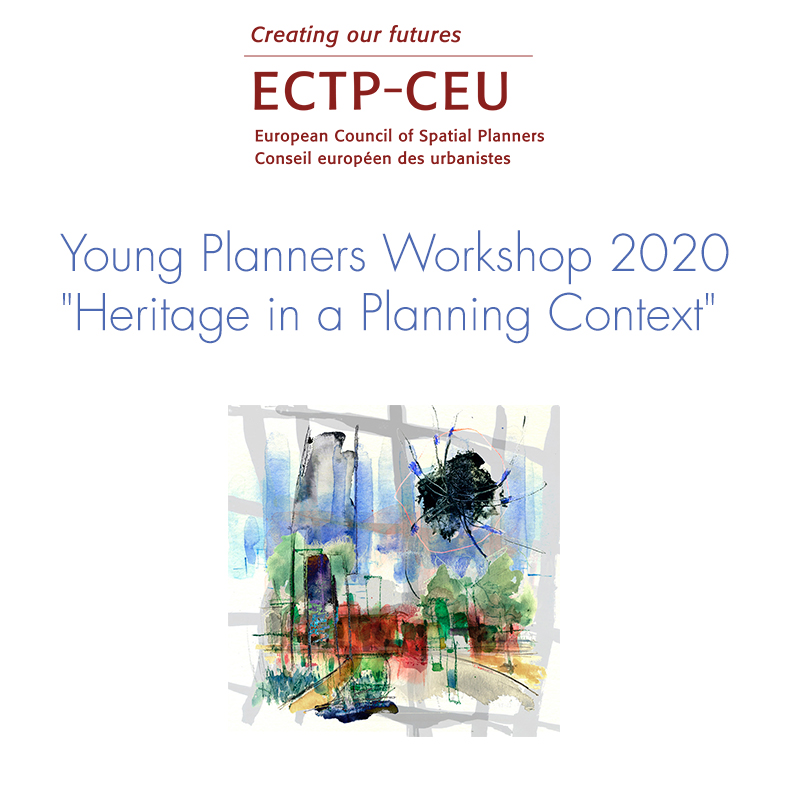About 2020 Workshop
In the last twenty years, the cultural heritage role in urban management has evolved from institutionalising conservation efforts to placing heritage at the heart of sustainable development. Therefore, the aim of the workshop is to question and understand the dynamics and interactions between cultural heritage, conservation, sustainability and the planning context. These fields have been regarded as opposing practices by some, although it has long been accepted that good planning is necessary and also responsible for conservation to date in many countries.
However, over the last few decades, conservation in urban areas has concentrated on the preservation of individual buildings and famous historic monuments. Increasing urbanisation, and the consequent pressure for economic development has also resulted in the loss and permanent destruction of many traditional rural and urban communities and their domestic landscape. In response to this, UNESCO devised their ‘Historic Urban Landscape’ (HUL) approach to heritage recognition and conservation for spatial and urban development planning policies. It suggests that heritage must integrate the wider landscape, as it concerns not only the physical building, but the broader context including cultural traditions and socio-economic aspects. It recognises that good conservation contributes to sustainability, as well as bringing economic benefits to the local population in spatial and urban development.
The UNESCO Historic Urban Landscape (HUL) method, which advocates a multi-disciplinary analysis of urban conservation for a heritage landscape-based approach,1 is increasingly being used as a model at a global level. It attempts to reconcile the multi-layered functions and development agendas of the urban area, and places heritage as new ‘generative value’ and a dynamic asset in city planning and development. Heritage is a testament to human creativity, as well as a resource for the construction of the identities of people and communities.
In this workshop, the ECTP-CEU seeks to further the debate on the ability of planning to adopt this multi-disciplinary methodology to find ways of planning and balancing spatial and urban development and heritage conservation and sustainability.
Drawing on heritage as cultural capital and an urban phenomenon, we believe the discipline of planning provides an opportunity to strengthen the understanding between these sometimes competing aspects in contemporary society and in sustainable development. To this end, this workshop seeks innovative projects from participating countries which manage this complex relationship and we ask that they be brought as exemplars for learning between nations. These might include:
a) addressing conflicting and complementary views, explanatory systems and theories that stem from understanding and interpreting the approaches and methodologies by means of these practices to address the tensions present between preservation, heritage, development and planning;
b) demonstrating how new approaches will offer benefit at different spatial scales of planning including national, regional and local, and in particular, how global approaches influence the local; c) investigating relevant models of governance for the new approaches to heritage conservation in the light of new integrated approaches;
d) formulating and developing response, disciplinary and/or practical instruments to overcome and manage new development, including infrastructure construction, tourism pressures and associated development, informal/illegal settlements, temporary events and associated structures, to resist these threats to heritage conservation of the built and natural environments.
In the last twenty years, the cultural heritage role in urban management has evolved from institutionalising conservation efforts to placing heritage at the heart of sustainable development.
Therefore, the aim of the workshop is to question and understand the dynamics and interactions between cultural heritage, conservation, sustainability and the planning context.
These fields have been regarded as opposing practices by some, although it has long been accepted that good planning is necessary and also responsible for conservation to date in many countries.
The participants of the 2020 Young Planners workshop will be integrated in the ECTP-CEU General Assembly in October 2020 in Athens.
As conclusion of workshop, the ECTP-CEU will publish an e-book with all projects and works developed and presented in the framework of Young Planners Workshop.
!! Submissions must be entered by April 15th 2020 !!

